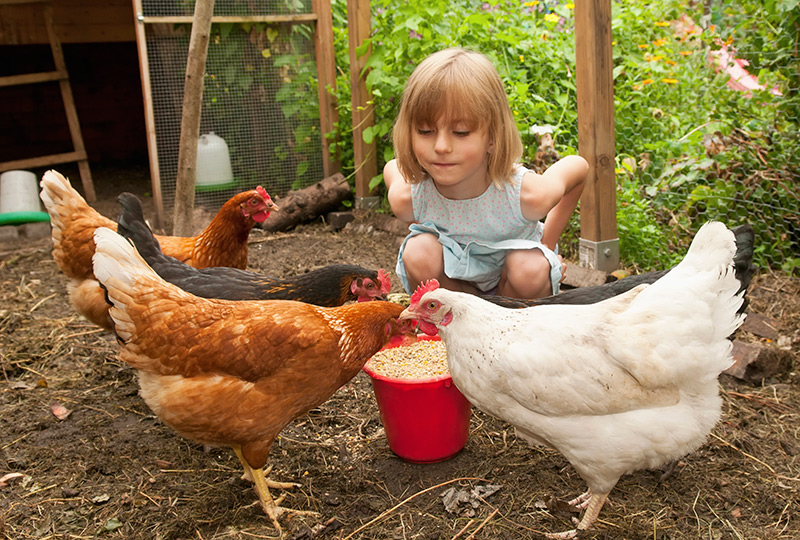On a field trip or weekend visit, keep these farm safety points in mind.
Visiting a farm or petting zoo can be a great experience for your family, especially in springtime when crops start coming up and many animals are tending young offspring. Children love to interact with animals. And on a farm visit, they can see how foods are grown and processed.
But before you load up the family for a rural adventure, it’s important to learn a bit about farm safety. Animals and heavy machinery are just a few of the hazards found on farms. Keep the following farm safety tips in mind when letting children explore farms and petting zoos.
Animals
Visiting the animals on a farm is a great opportunity to teach kids to be respectful of farm life. Teach children not to run, scream, speak loudly or otherwise startle an animal. Because a mother protecting her young can become defensive, kids shouldn’t go near baby animals unless supervised by an expert.
Helmets are an important safety feature when riding or working with horses.
Animals may transmit infections to humans. Have your kids wash their hands with warm water and soap after touching any animals.
Machinery
The heavy machinery typically used on farms can pose serious safety risks. The most common machinery injuries involve large equipment such as combines, threshers, hay processors and riding mowers. Tractors are the most frequent and most deadly cause of machinery injuries. Do not let children wander into areas where heavy machinery is stored or being used, and do not let them climb on machinery without being helped by the farm’s staff.
This advice applies to ATVs, too. The American Academy of Pediatrics recommends against children under the age of 16 riding all-terrain vehicles. If you allow a younger child to ride an ATV, be sure they always wear an appropriate helmet. Adults and children should understand these ATV safety rules.
Water safety and manure
When kids explore or play near any body of water, there’s always a risk of drowning. Ponds, feeding troughs or other water containers may pose a hazard. Watch kids as closely on a farm as you would at a swimming pool or the beach.
Supervise kids at all times. Teach them to avoid water if you’re not around to watch them.
Manure pits (sometimes called lagoons) are also a special danger on farms. Many farms producing dairy, beef and pork products have complicated systems to handle animal waste. When animal manure decomposes, it gives off gases such as hydrogen sulfide, carbon dioxide, ammonia and methane, which can be dangerous to adults and kids alike. These gases may be colorless and odorless but are extremely poisonous. Some are even flammable. To prevent poisonings, children should never enter a manure pit or silo (gases can also build up in silos), even if it is empty.
Grain and silos
Grain, usually stored in a silo, is an underestimated danger. Children can become trapped and suffocate under the shifting surface of stored grain or in flowing grain that is being sucked out of the silo.
To prevent injuries from grain entrapment, teach children to never enter a grain storage container or silo. Do not allow them to ride in grain wagons. In addition, if someone is trapped in a silo, teach kids never to climb in to help. Instead, they should call an adult or dial 911 or the local emergency number immediately.
Falls
Children may be enticed by ladders on silos or haylofts. Teach them to stay off ladders, and out of haylofts. A fall from the loft can cause serious and deadly injuries.


